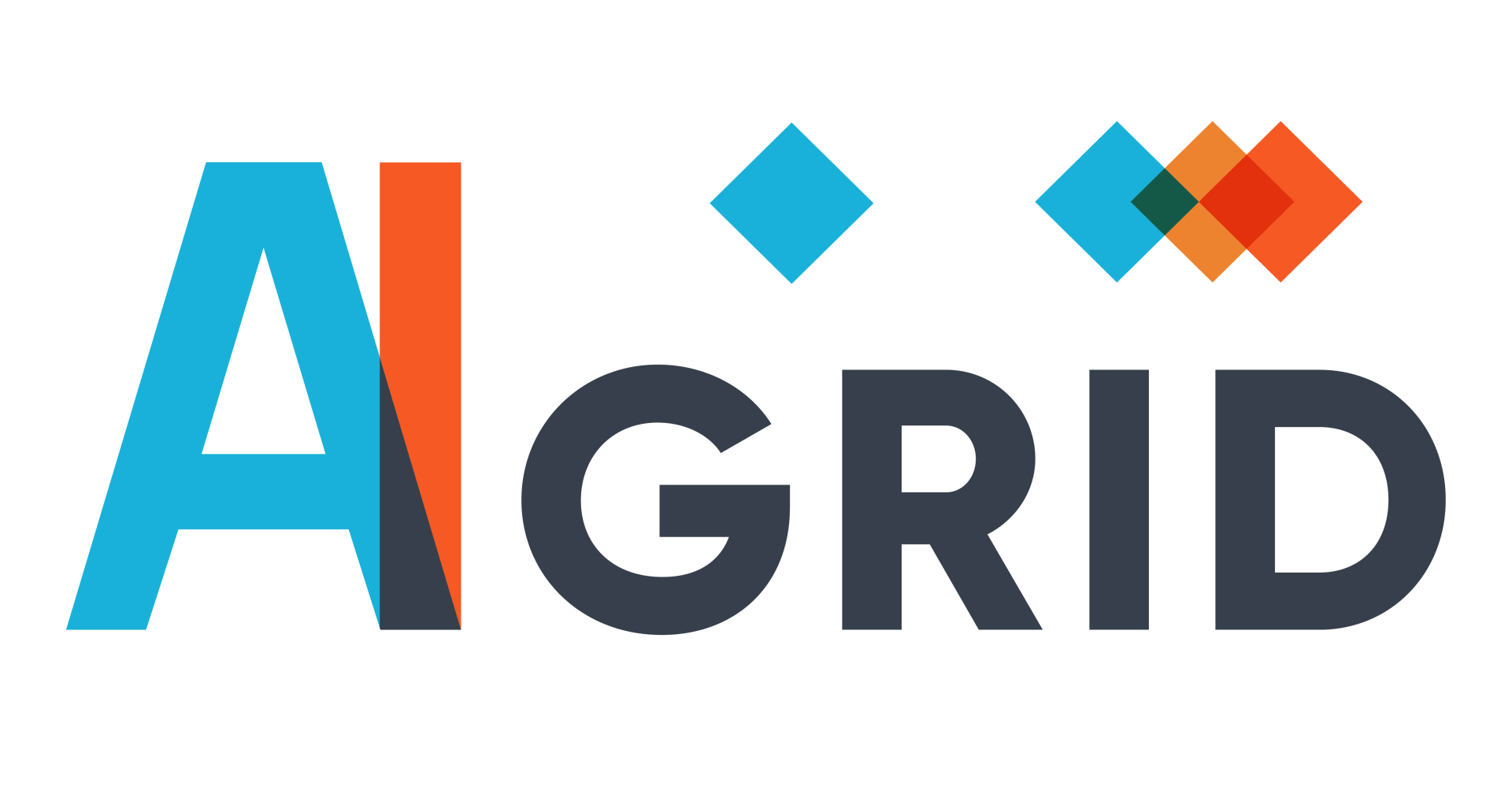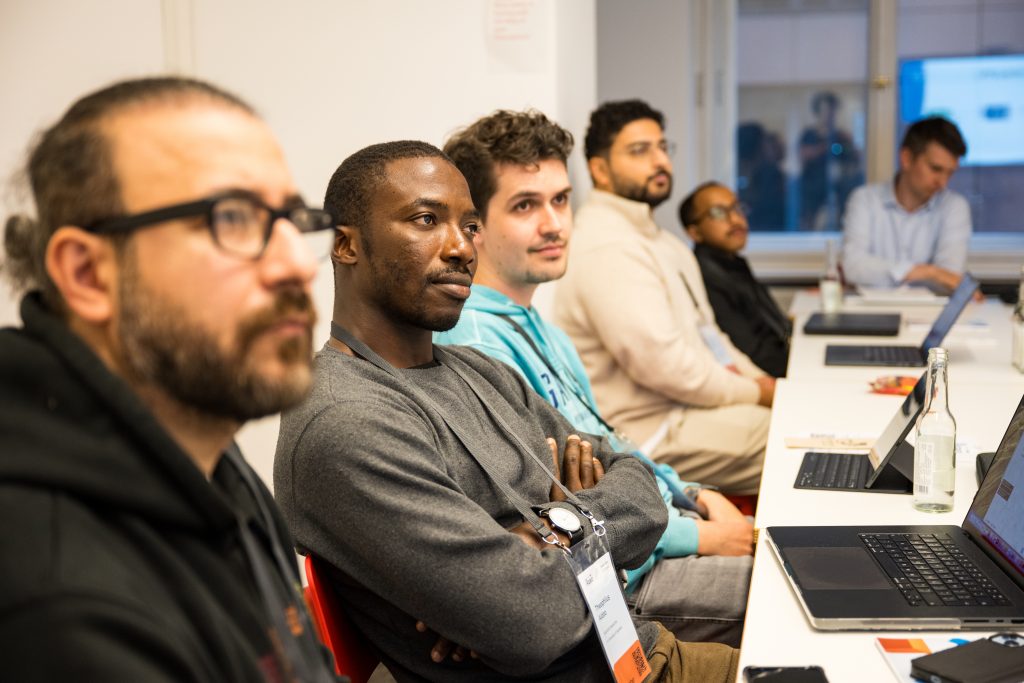Berlin, 09.10.2025 – Am 08. und 09. Oktober 2025 brachte AI Grid, das Netzwerk für KI-Talente, über 90 junge KI-Forschende und Expert:innen aus Wirtschaft, Wissenschaft und Politik auf dem AI Grid Summit im Einstein Center Digital Future in Berlin zusammen. In Panels, Keynotes und Workshops beleuchtete die KI-Community Themen wie Verantwortung und Wirkung der Entwicklung neuer KI-basierter Technologien sowie Karrieremöglichkeiten im Bereich der Künstlichen Intelligenz.
As an initiative funded by the Federal Ministry for Research, Technology and Space (BMFTR), the network supports central priorities of Germany’s new Hightech Agenda Deutschlandsuch as fostering young talent, accelerating the transfer from research to industry, and strengthening Germany’s role as an innovation driver in key technologies like artificial intelligence.
Wolfgang Wahlster, Chairman of the AI Grid Board and in September the first AI researcher to receive the Konrad Zuse Medal—the highest German computer science award—opened the conference with a lecture on combining generative and analytical AI. He highlighted the opportunities for the next generation of AI talents: "For the next generation of AI researchers, there is a chance not just to follow current AI waves like generative AI and large language models, but to trigger the next wave of innovation themselves. It is already becoming clear that in industrial AI—which is more in demand from German companies and for export than AI for the mass market—small, domain-specific language models (SLMs) are often better suited than LLMs for embedded system architectures due to lower latency and reduced resource consumption. It is also clear that hybrid AI systems, combining neural and symbolic AI methods, are usually required to solve practically relevant problems. Through interdisciplinary cooperation at an excellent level, our members in AI Grid have the opportunity to trigger another AI innovation wave from Germany by applying machine learning to action and process models in autonomous systems, combining generative and analytical AI, and thus to play a leading role globally through leapfrogging."
Trend Topic and Practical Use Cases on Day 1: Between Benefit and Responsibility – AI Agents in Practice
Seventy percent of corporate executives see AI agents as one of the top three technologies of 2025, according to a recent survey by IT consulting firm Capgemini. A discussion panel focused on these AI agents, their potential, risks, and societal impact.
Irina Weiß-Avetisyan, Strategy and Innovation Specialist for AI at TECHNOLOGIQUE, emphasized that companies should first have a clear AI strategy before considering LLMs and AI agents. Despite the capabilities of agent systems, she encouraged the attending AI researchers to look forward to innovation: "Be ahead of the next wave of innovation. Germany has always been an engineering stronghold. There may be computing centers and power elsewhere, but you are the bright minds. You can make a difference. Be aware of that."
Dr. Katharina Weitz, Project Manager at the Fraunhofer Heinrich-Hertz Institute, highlighted that practical implementation requirements for AI agents are often underestimated. Successful integration is only possible if users’ perspectives and needs are considered from the start. She advised attendees: "It is important to go deep in research and build expertise. But always keep in mind the practical aspects and complexity of the real world."
Four parallel sessions explored very practical cases of AI implementation across industries, including AI agents in mental health, computer vision systems in automotive manufacturing, and industrial production control.
Finn Borchers, CEO of Alera GmbH and speaker on AI agents and mental health, said: "We need to stop seeing AI in psychotherapy as a risk. The greater risk is doing nothing—while people in
Germany wait up to a year for therapy appointments. Alera is not yet a replacement for a therapist, but it can be there in crucial moments. We see enormous potential for AI applications in healthcare. With Alera, we are already supporting people in over 50 countries and showing how technology can provide real access to mental health support."
Careers: Opportunities and Pathways into the AI Workforce
The second day of the AI Grid Summit focused on careers and job opportunities in AI. The keynote by Prof. Dr.-Ing. Elif Bilge Kavun, Professor at TU Dresden, highlighted possible career paths for university graduates, recommending: "Find your own path; don’t follow someone else’s. There are many possibilities such as research, industry, start-ups, consulting, NGOs, or science communication. Try things out, don’t be afraid to switch, and engage with people in the field. Be curious and experiment."
The morning sessions presented three career paths: AI jobs in industry, research, and start-ups. Rockman Law, investor at Merantix Capital, advised: "Leverage your network and meet people without a set agenda. This can pay off and lead to exciting ventures. My advice: think about what you are good at, what you enjoy doing, and what people would pay for. Then find something that lies in the middle." Meanwhile, Dr. Katja Filippova, Research Scientist at Google DeepMind, said: Meanwhile, Dr. Katja Filippova, Research Scientist at Google DeepMind, said: fürs Netzwerken for networking at conferences and at work. Imagine your future work mentally. Does this image evoke positive feelings? Then follow that feeling." The day concluded with coaching workshops on job applications in industry, networking as a career booster, and stress management tips—a key to successfully completing a PhD.
In addition to the exciting sessions, the event offered ample networking opportunities and is likely to spark new collaborations between young AI talents and experts. The next AI Grid Summit is planned for the second half of 2026.
About AI Grid – Europe’s AI Talent Incubator
AI Grid is an initiative funded by the Federal Ministry for Research, Technology, and Space (BMFTR) to support young AI researchers. With around 300 members, 43 Micro Focus Groups (specialized communities on topics such as robotics, deep learning, and trustworthy AI), 99 mentors from academia and industry, 11 international ambassadors, and around 12 exclusive events annually—including visits to Europe’s AI hotspots—AI Grid aims to establish a robust network for excellent scientific exchange.
AI Grid-Kontakt
Varenia-Louisa Weiland
Communications Manager
+49 30 345 066 906
varenia@ai-grid.org
Lars Kitzmann
EuroComms
+49 178 788 2961
lars@euro-comms.com

